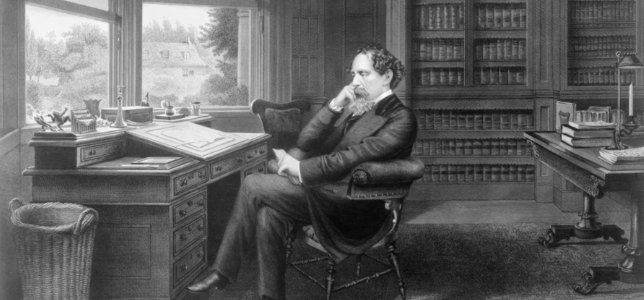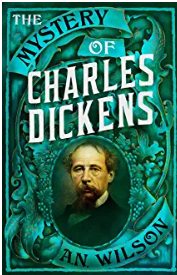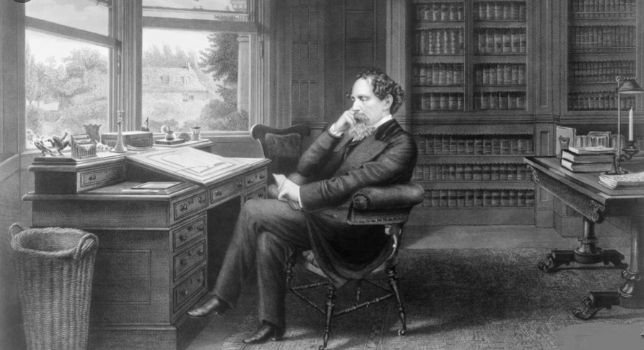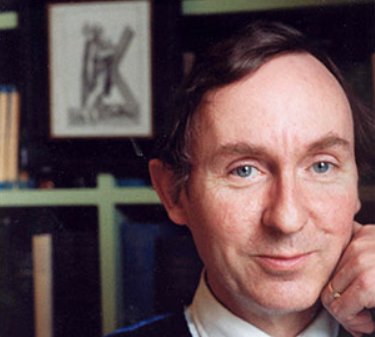
Charles Dickens the champion of the downtrodden



Charles Dickens, a great orator and one of the most famous of the eminent Victorians, with his hyper-energetic personality, experiencing the best and the worst of life during the Victorian Age, looked much older than his fifty-eight years when he died.
Dickens wanted the real world divided neatly into good and bad, like the characters in his novels.
In 1867 Dickens-mania was peaking on both sides of the Atlantic and the 55-year-old authors were capitalising on his success, with a major reading tour of the US, when one evening in Boston, an angry American stormed out of a public reading given by Charles Dickens yelling “ that ain’t the real Charles Dickens, the man who wrote all them books I’ve been reading all these years.” Dickens had become a celebrity as his readers felt that they knew him.
Dickens was “not just reading from a text, but being these characters. And not just being the characters. He was being Dickens being the characters” observes AN Wilson.
Wilson follows him from cradle to grave and it became clear that Dicken’s fiction drew from his own experiences, sets out to solve the riddle of the mismatch between the Dickens we think we know, as readers of novels so rich with his experience, and the Dickens that present s himself to a biographer, often evasive, recalcitrant and contradictory.
Oliver Twist, Dickens suffered a wretched childhood, then grew up to become not only a respectable gentleman but an artist of prodigious popularity. Dicken’s vast and wild imagination revealing why his novels have such instantaneous appeal and why they continue to resonate even today.
Although Wilson’s attempt to pin down the Dickens we don’t know is energetic, he leads the reader, like one of the ghosts in A Christmas Carol, to visit moments in the writer’s life: his death day; the Marshalsea debtors prison where his father was held; the venomous late days of his marriage; the public readings; his open grave at Westminster Abbey. Wilson overlooks the home where Dickens dumped his wife after falling in love with a much younger actress, he broods on the misery of the marriage and the work ethic that drove Dickens to produce his masterpieces while churning out articles, editing a journal, directing charitable enterprises and acting on stage.
The same Dickens who uses such appalling language to his wife that his publisher refuses to visit him at home is shown attempting to have a girl imprisoned for swearing in the street. Dickens the champion of the downtrodden appears alongside Dickens the supporter of corporal punishment.
Dickens the founder of a hostel to rehabilitate fallen young women after prison oversees his charges with the rigour of the second gaoler.
The Mystery of Charles Dickens by AN Wilson Atlantic £17.99, 358 pages.
